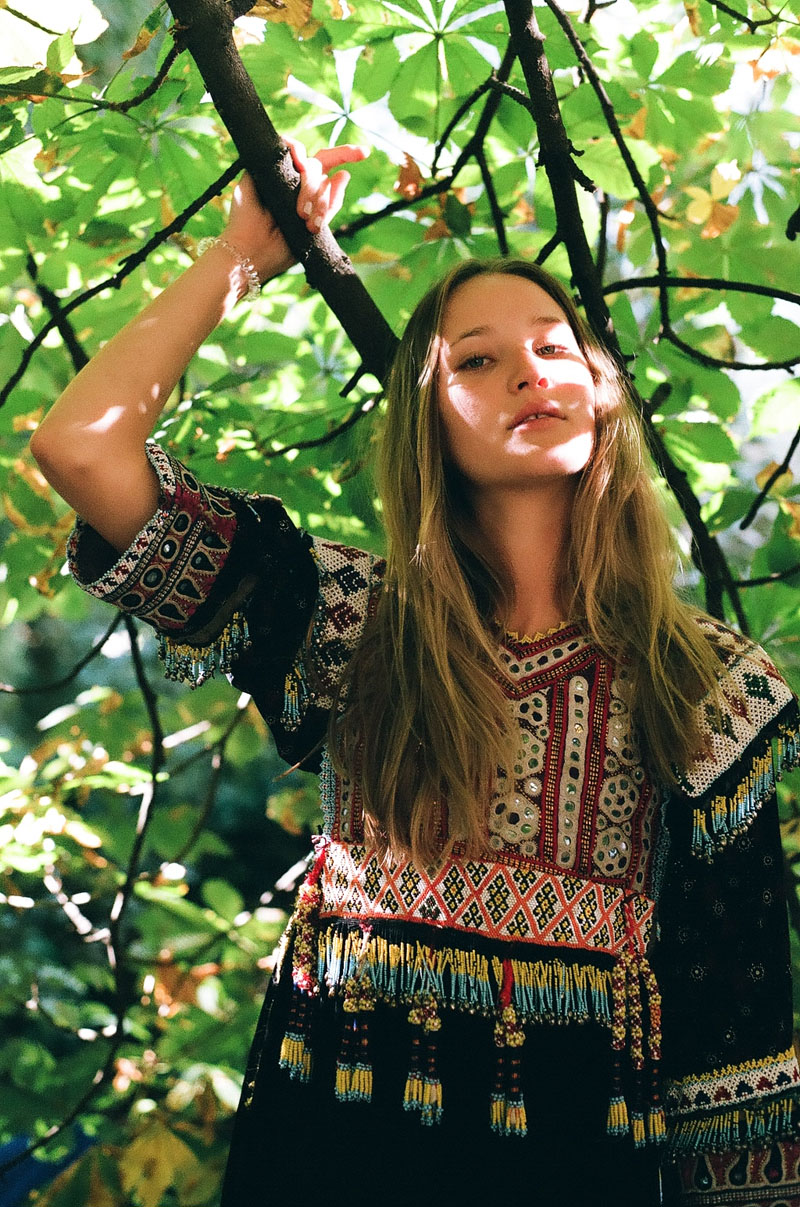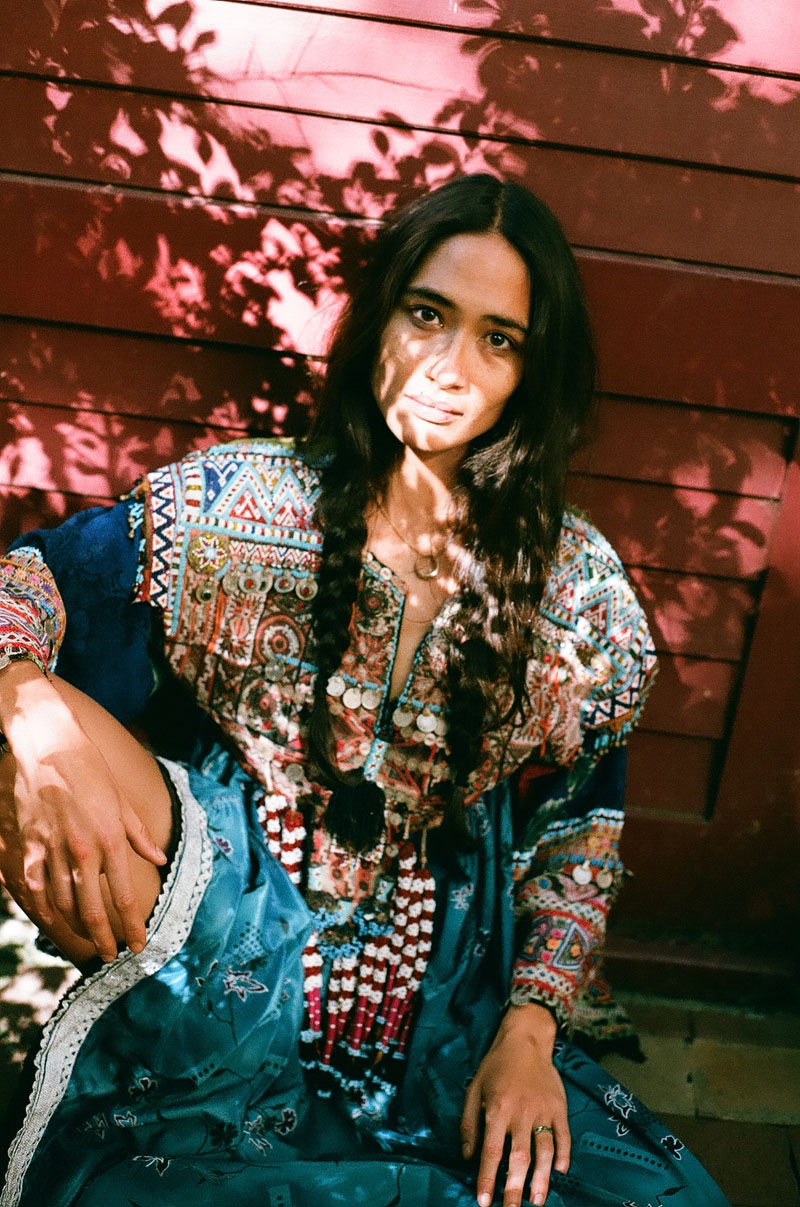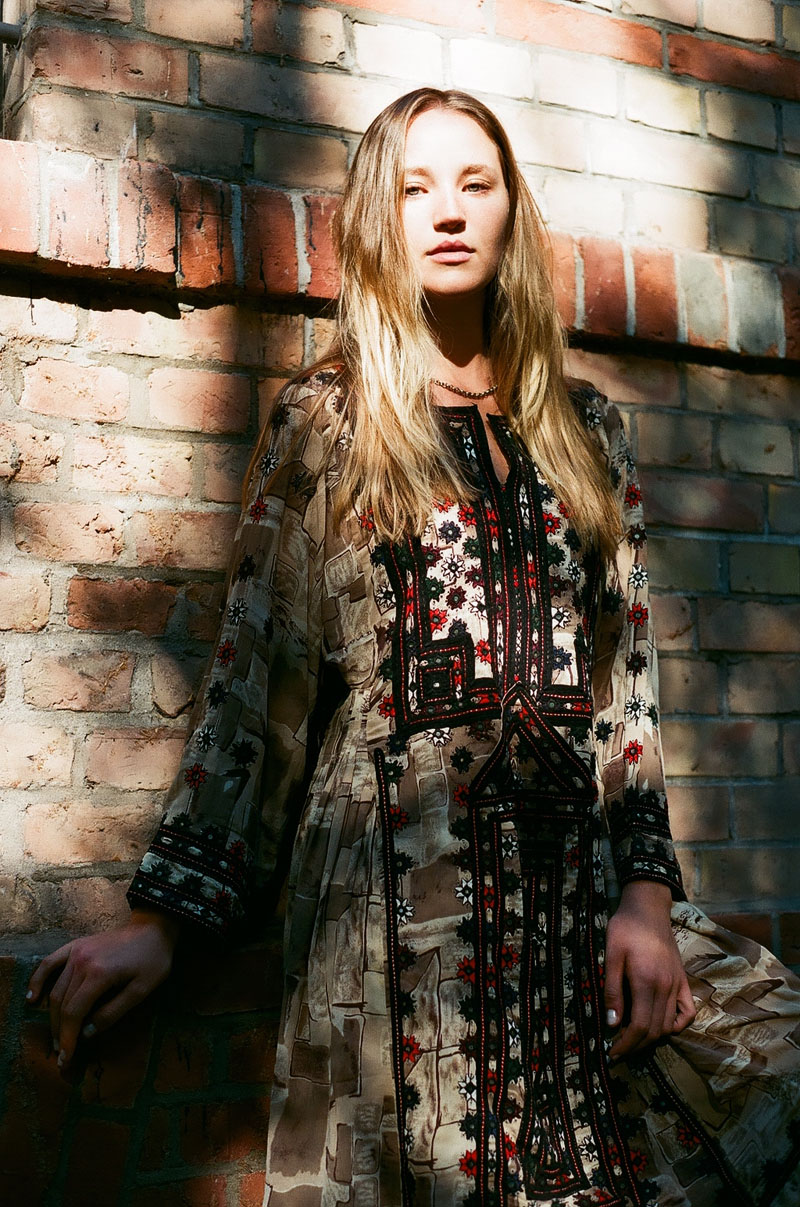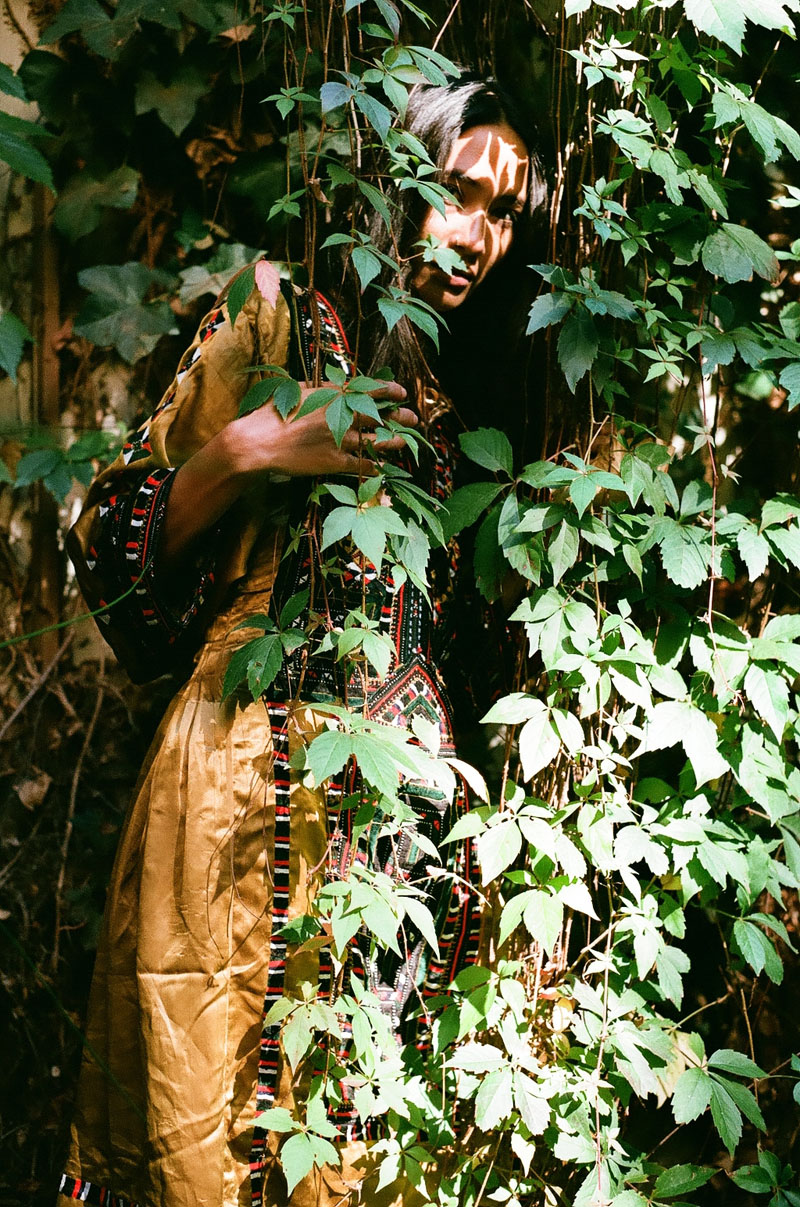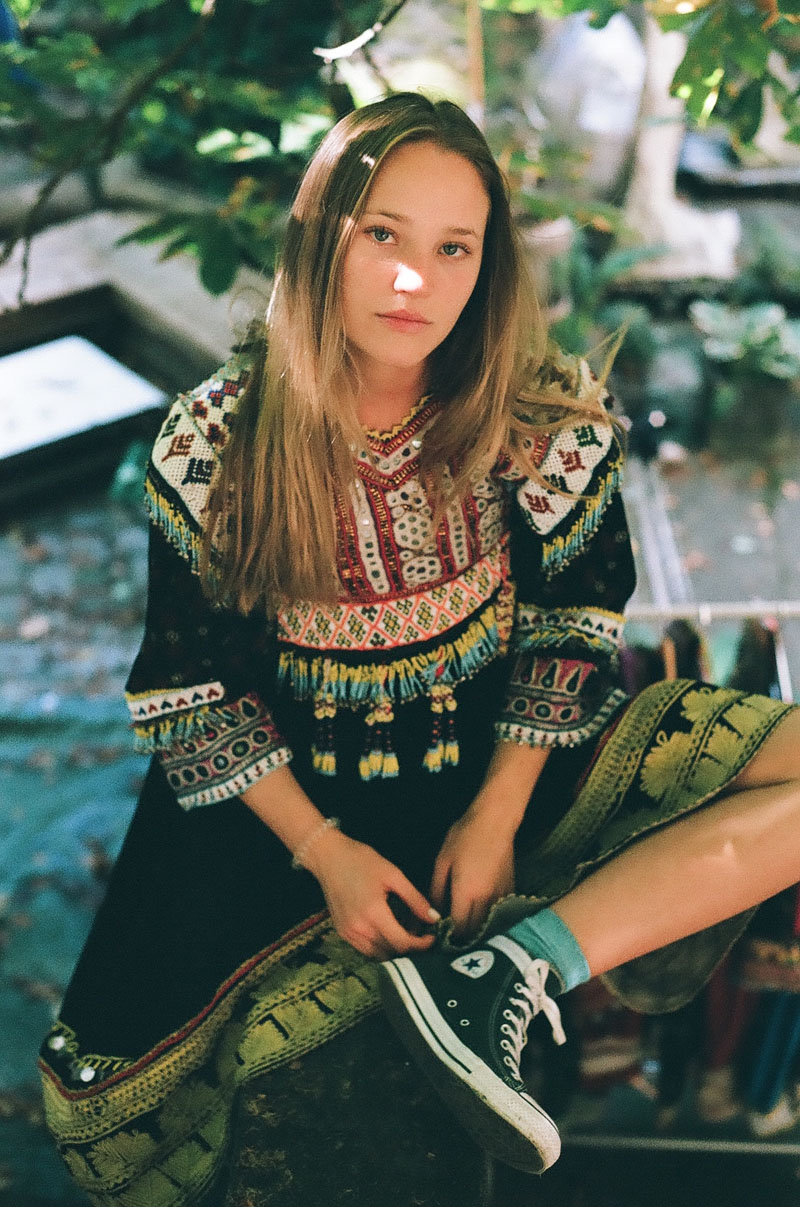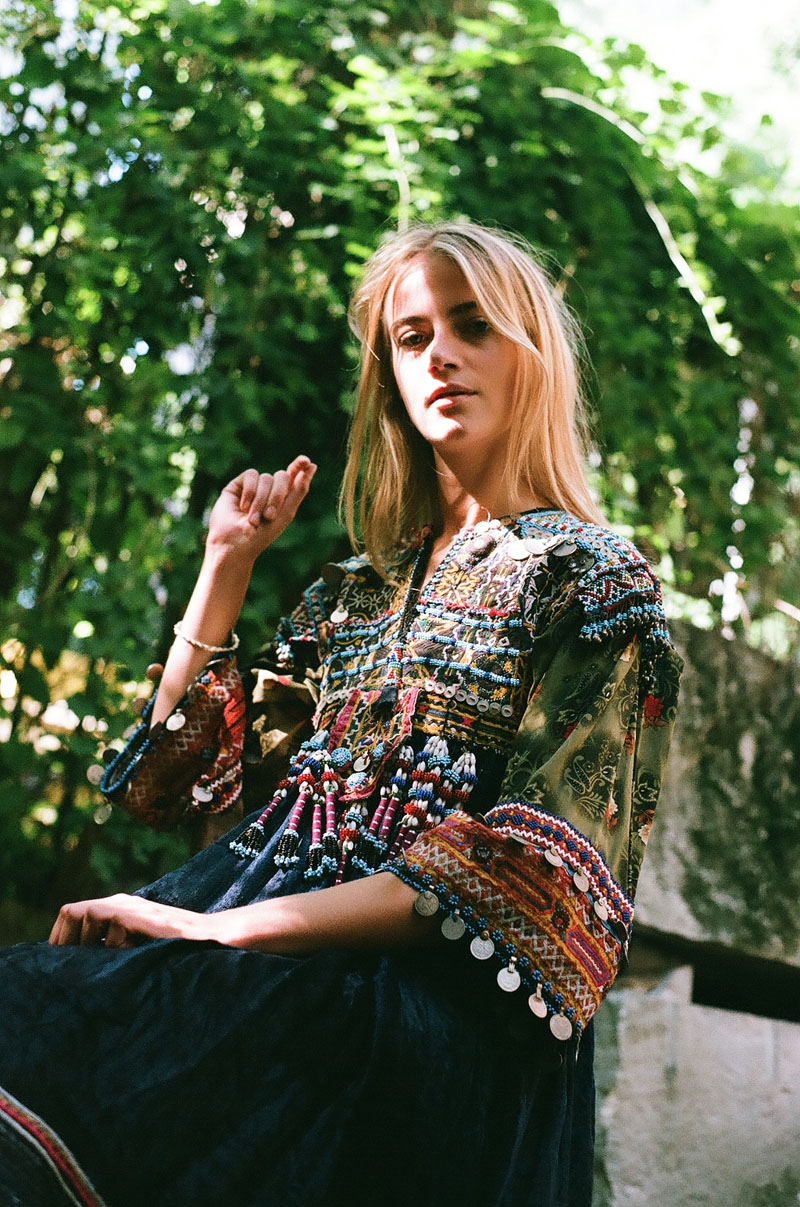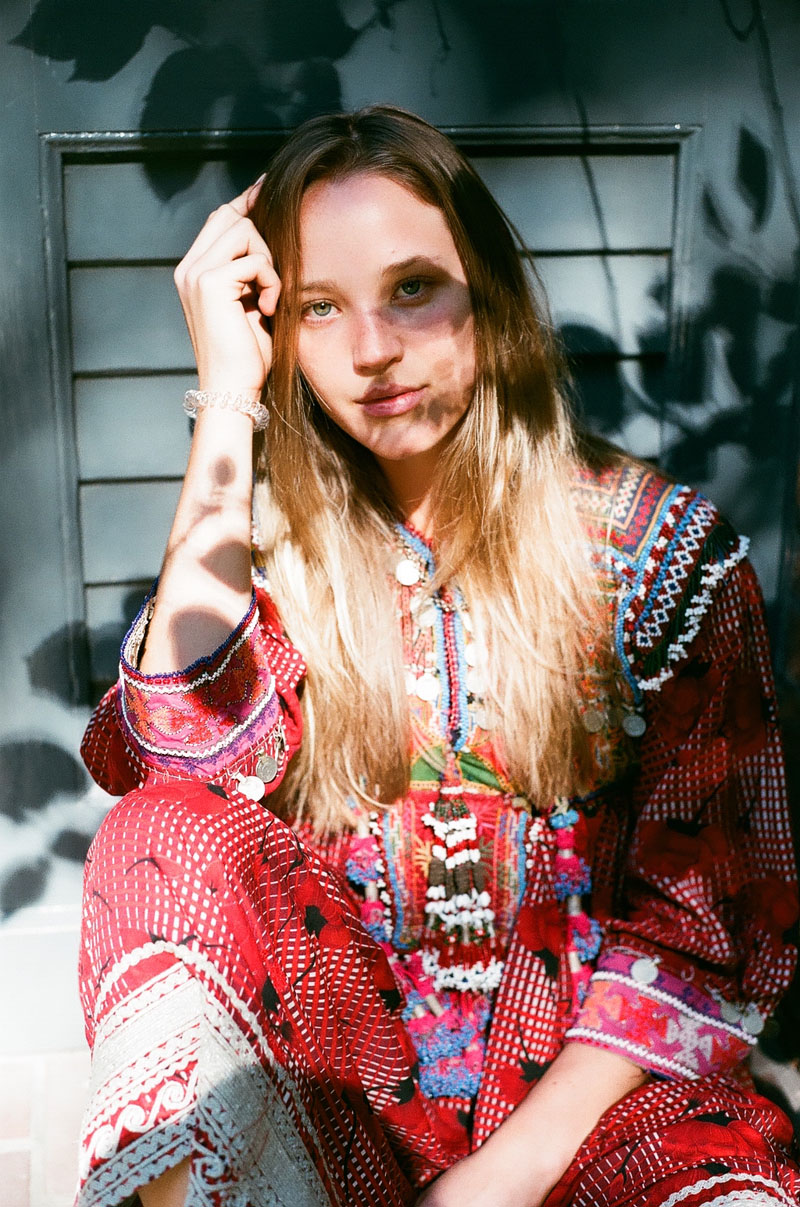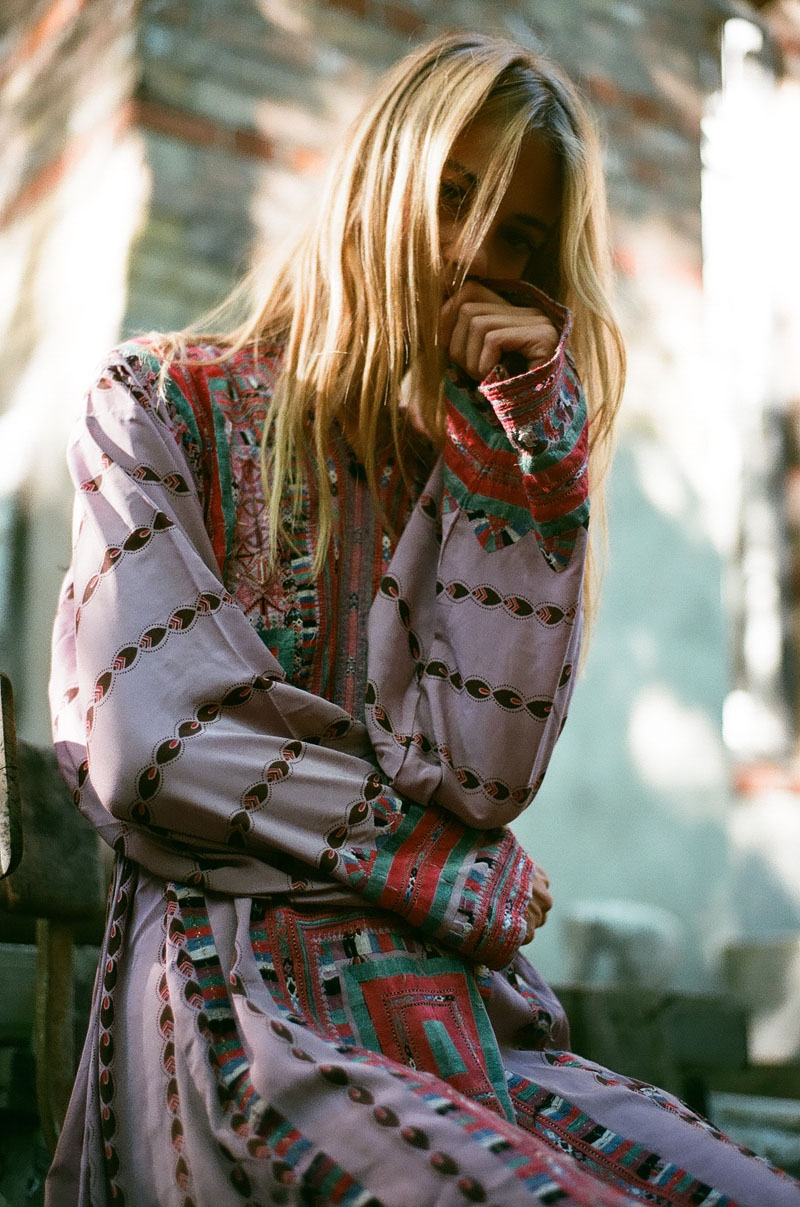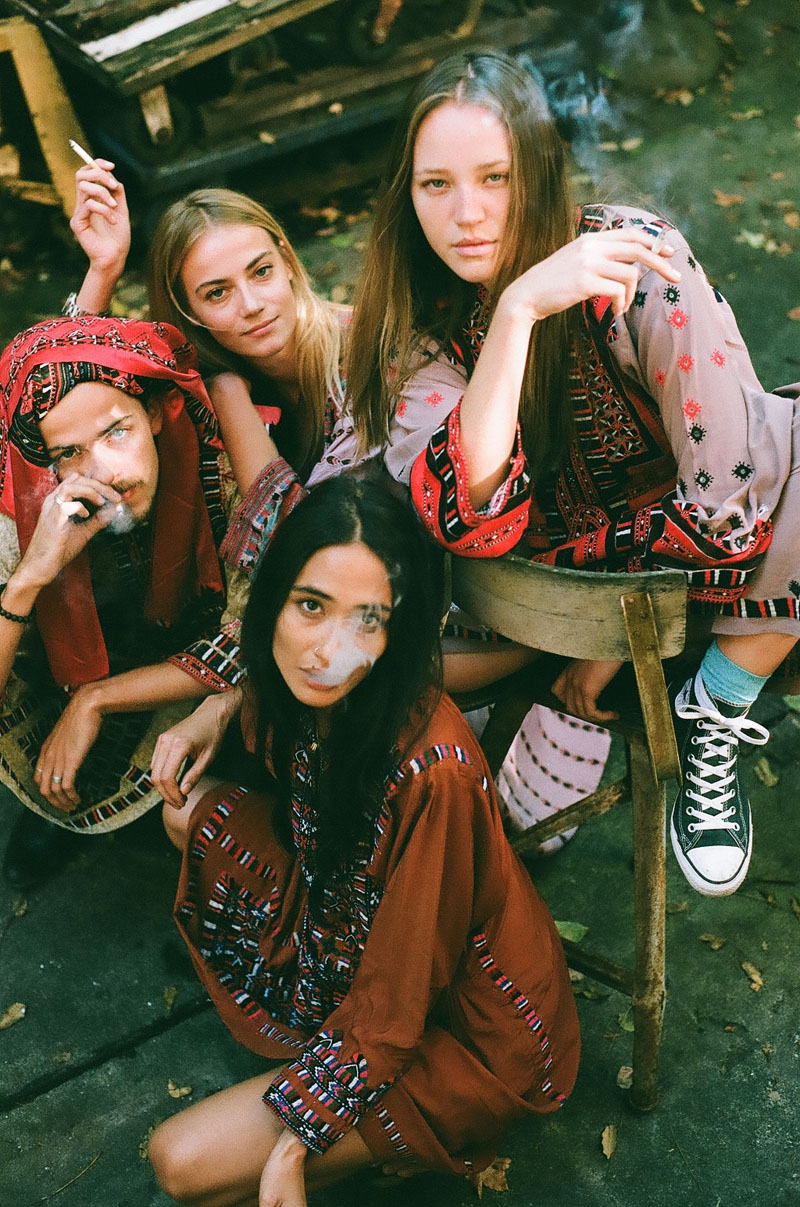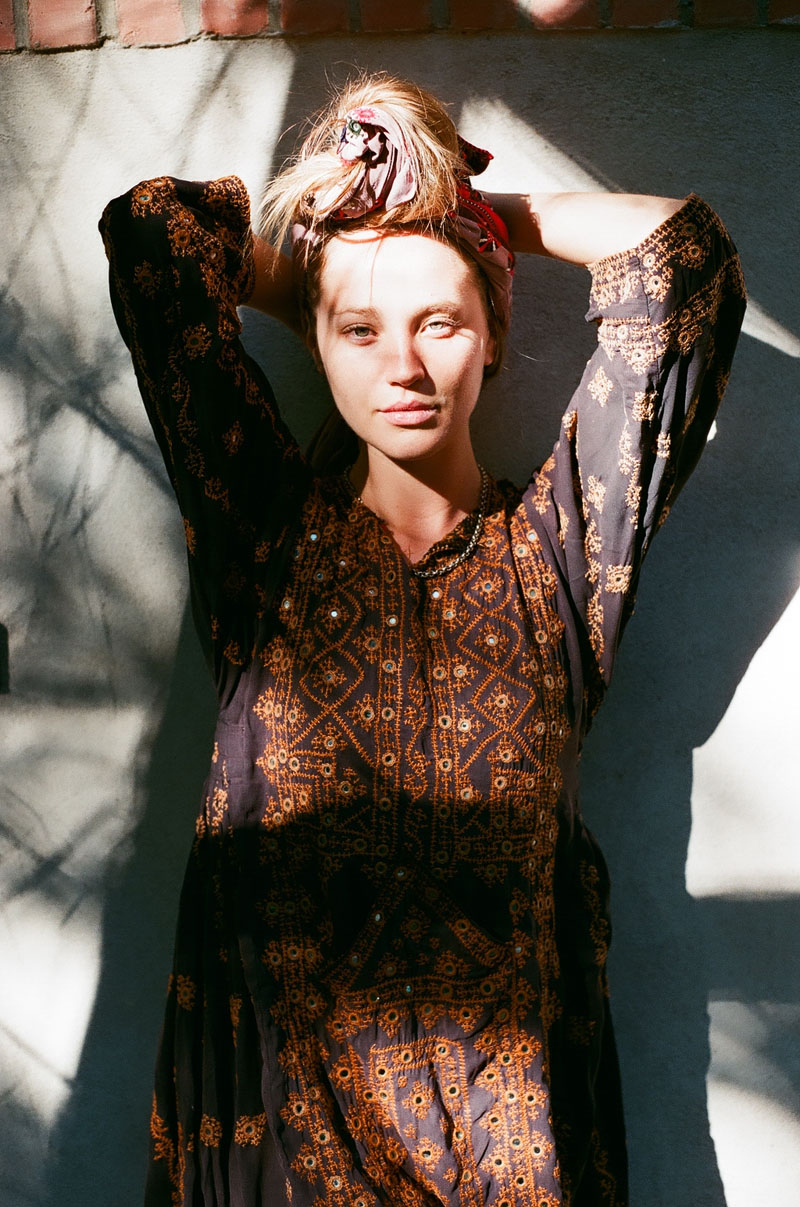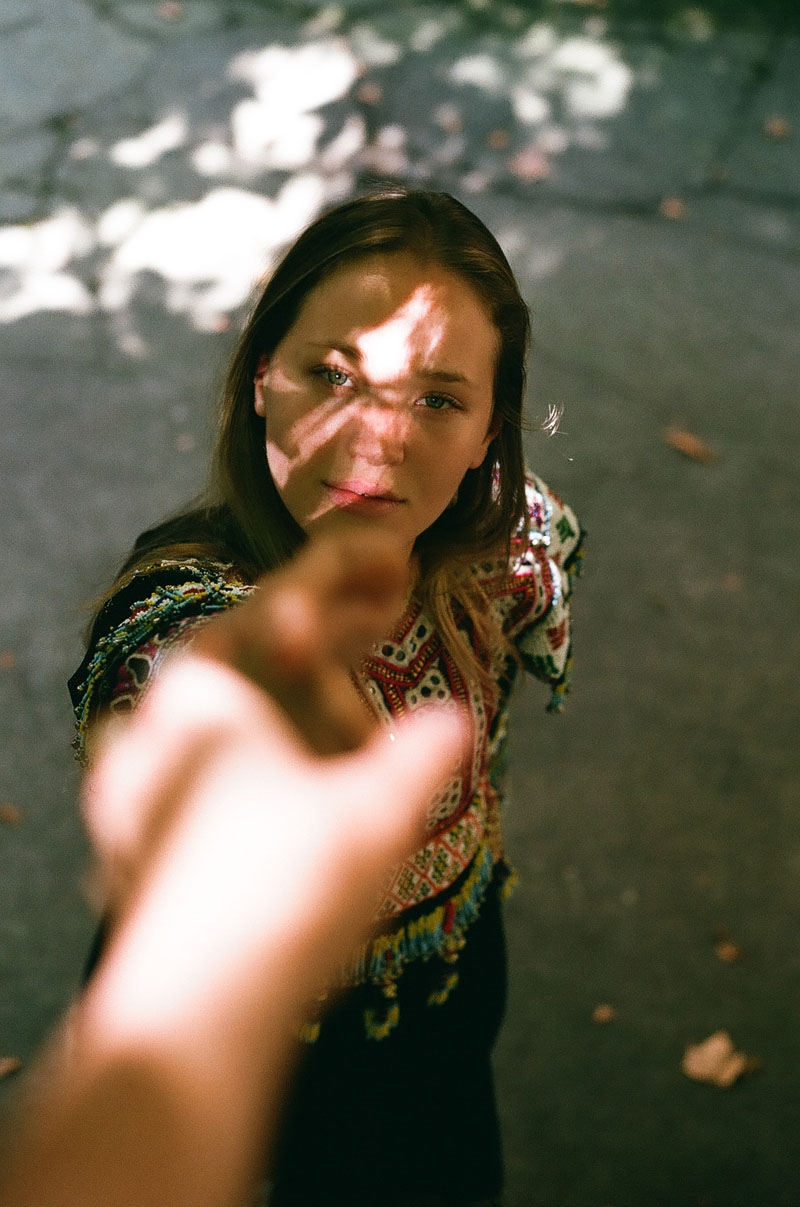“The practical philosophy of ethics (which I feel passionate about), has taught me a lot about my responsibilities. That is, if I believe something is not right, then I need to see how I can change that within my capacity. From feminism to climate ethics, learning about these topics gave me the inspiration and motivation of what I want to change and why. I am very aware that I am just starting out with this company and need to continue with little steps, so that Zazi advocates the things that I truly know about: fashion, feminism and sustainability.”
I randomly met Jeanne ZIZI Margot de Kroon, founder and creative director behind the vintage label ZAZI, at Warschauer Strasse in Berlin, where I noticed her beautiful dress and complimented her on it. That´s when she began to tell me a part of her story. And about her project ZAZI, a fashion label trying to portray both sides in the best way: the producers and the buyers and connect them both somewhere in the middle. Even though the idea that we should know where our clothes come from is not something new and has been implemented by several companies already, there is something wonderfully unique about the ZAZI brand, also thanks to the charismatic founder and of course the ellaborate, traditional vintage clothing from all over the world.
Tell us a how you came up with the idea of starting Zazi brand?
The idea for Zazi Vintage came after I started to connect a lot of dots in my life. From an early age, I’ve always thought of fashion, like art, as a medium to translate a message. The message that lies underneath. Fashion, as a platform, has the power to reach a huge audience, of which the majority is women, I feel it is about using the power for good, and sending out a message of unity and empowerment. Three years ago, I travelled to Nepal and got pulled in to a little cafe by a local woman in Kathmandu, she took me to her home and dressed me in an amazing ‘70s Bollywood blouse from India. She said it would give me superpowers, and somehow, it did.
After Nepal, I travelled from the Himalayas to India and I noticed that by wearing this blouse, I was sending out a signal that the local women there understood. It was a wish to connect to their culture and their stories. Seeing the power of a simple piece of material and the way in which it translates and communicates without words has inspired me to travel the world.
From wearing a ‘Netela’ (handmade Shawl/cloth) to communicate with the Ethiopian women that were in the project that I worked for, to wearing a blouse from the matriarchal societies of the desert in Gujarat, India, dressing a certain way has always broken the barriers between the women I met and I. During my last few days of travel in India, I came across some dresses from the Kuchi tribe and fell completely in love with them. When I got back to Germany I entered another intense semester at university full of human rights and business ethics. This inspired me to take my passion for vintage pieces to another level where all parties of the fashion chain would profit. The primary contacts I made all around the world were women, but unfortunately it can be hard for them to actually start up a business and become financially independent in patriarchal societies. That’s why I connected the idea of having local women worldwide opening their own businesses by buying vintage pieces from their areas, and connecting each area with a local NGO that supports women’s rights.
What have been the biggest challenges so far?
The biggest challenges so far have been doing all kinds of things for the very first time. Starting up my own business with a background of philosophy and ethics, I knew the reason why I’m doing it, but the translation of the why in to the how has been the biggest challenge so far. I had to learn how to do PR, code websites, organise photo shoots, invest in new projects, manage logistics and direct a company within a few months. Although I’ve had a lot of 14-hour workdays, if your inspiration and passion is strong enough, all these little challenges will flow and become little seeds for growth. The most beautiful little helpers always seemed to come on my path when I needed them. The whole journey of Zazi has been such a gift, that even when nothing comes out of it, I feel so incredibly blessed with all the women I have met on this path that share the same vision.
 “The women that buy Zazi should feel empowered because they are contributing to powerful projects while looking fabulous in incredible, one of a kind vintage pieces.”
“The women that buy Zazi should feel empowered because they are contributing to powerful projects while looking fabulous in incredible, one of a kind vintage pieces.”
How do you want to progress with Zazi in the next 5 years?
I am in the outskirts of India right now for a very special project. I noticed after some time and many Skype conversations with our collectors that having only one girl to collect vintage is a beautiful thing, but I would love to make a bigger impact than just one girl. I had the idea of making a collection out of landfill waste combined with traditional vintage for quite some time. That’s when Madhu walked across my path. Madhu is one of the strongest women I have ever met. She was married to be a housewife in Rajasthan, India, when she came across a very conservative village in an area near the desert and decided to make a change. She learned English within a few years and with the help of American universities she started her own NGO called Institute for Philanthropy and Humanitarian Development (IPHD). IPHD is an organisation that is tackling all the challenges that women in the rural areas of India face. Twenty-five of the women she rescued from the village were mostly kept indoors by their husbands and didn’t have any opportunities to grow, to learn or to earn any income.
These women are incredibly powerful and the only thing this organisation needed was the opportunity to work for the women. Madhu recruits students to organise classes on feminism, teaches them how to use an old sewing machine, provides menstrual hygiene and health workshops and even teaches them how to grow their own vegetables so they become less dependent on big corporations and the monsoon season. The main aim is independence for the women, in every aspect of the word. Now, Madhu and I have been collecting old traditional vintage from the rural villages around the area to integrate them with the Western fashion market by making a collection, all of which will be sewn and embroidered by the ladies of the village. I hope that Zazi can set up and work with many projects like this in different countries so that there will be timeless collections using landfill waste and traditional vintage while giving the local women there the opportunity to earn a good wage and build their financial independence.
You studied philosophy. In what way is that useful for what you are doing now?
My philosophy studies have been helping me with every step I have taken in this Zazi journey. Although I mostly study old texts within a very old and outdated (In my opinion) framework of Philosophy world, it does give me a strong basis. You start to explore the limitations and freedom of the mind and its capacity to create and formulate reality. What mostly stops people from doing stuff, is fear. Philosophy teaches you that there is nothing to be scared about. Whether it comes out of the Upanishads, the fancy words of Hegel, french existentialism, of your local yoga teacher, they all say the same. You have the power to create your own reality. So all that is left is finding out what you believe in. For me, I believe that fashion and the connections we make through it should empower, on all sides of the chain. Rukiya, for example, from the village that I work with now, should feel empowered by earning her own wage, being able to put her kids in school and by easily working from home. I feel empowered as the middle woman, making the connection between a tiny village in the desert of India and the West. I feel the responsibility to tell both sides of the story. The women that buy Zazi should feel empowered because they are contributing to powerful projects while looking fabulous in incredible, one of a kind vintage pieces.
The practical philosophy of ethics (which I feel passionate about), has taught me a lot about my responsibilities. That is, if I believe something is not right, then I need to see how I can change that within my capacity. From feminism to climate ethics, learning about these topics gave me the inspiration and motivation of what I want to change and why. I am very aware that I am just starting out with this company and need to continue with little steps, so that Zazi advocates the things that I truly know about: fashion, feminism and sustainability.
“Success, again, depends on the meaning that you are giving to it. Zazi is not a company looking to maximize its profit. I want every part of my job to give me something, and for the people that I work with to leave with a smile.”
You were also modelling for a bit, but you told me it was not so much your thing. What is nevertheless the valuable things that you learned from that time?
I learned so much from my modelling experiences. Most importantly, that modelling was not my path. I loved telling a story with imagery but not a story that I didn’t believe in. After my last job for a big unethical company, I decided that this whole modelling thing wasn’t for me. I worked in a project advocating for female rights, and then I was modelling for a big company which, I’d learnt through my studies, was exploiting women on the other side of the world. So my beliefs became clearer: if you know, then you have the responsibility to say no.
Money comes and goes and I want to be proud of what I am doing. In a very practical sense, I always organise my shoots in the way I personally would have loved to shoot: analog, no hair or make up team, and no stylist. I’m in the kitchen for an hour before every shoot preparing healthy and yummy food for the models and make sure that the team is awesome and easy going. I also always give the models the option to become ambassadors or share their story with the pictures, since every model that I work with becomes part of the clothing’s story.
Success versus enjoying the moment. Is it possible to be successful and at the same time live this very popular philosophy of these days “to live in the moment”?
I think within Zazi the two pretty much melted in to each other. Success, again, depends on the meaning that you are giving to it. Zazi is not a company looking to maximize its profit. I want every part of my job to give me something, and for the people that I work with to leave with a smile. Success for me is seeing one of my favourite Berlin based DJs (Hannah Martha van Straaten) playing a set in one of Zazi’s dresses, and afterwards using that purchase to give power to another lady in the outskirts of the desert by providing her with an opportunity to rise out of poverty.
Photography by Shannon May Powell www.instagram.com/shannonmaypowell
Models are Tessa www.instagram.com/tessa.westerhof
Jennifer www.instagram.com/jennifergilmore
Nina and Julia


